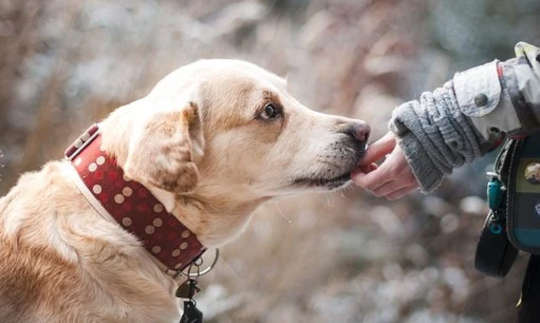 Relax, humans! I’m not going to start the next pandemic.
Relax, humans! I’m not going to start the next pandemic.
Scientists have found a new canine coronavirus in a handful of people hospitalised with pneumonia. This may sound alarming, but once we unpack it, you will see that there’s no reason to lose any sleep.
The discovery of the canine coronavirus in eight people at a hospital in Sarawak, Malaysia, was reported in Clinical Infectious Diseases by a group of highly regarded international scientists. So does this mean dogs can spread coronaviruses to humans?
The first thing to clarify is what canine coronavirus is. Importantly, it is quite distinct from SARS-CoV-2, the virus that causes COVID-19. The coronavirus family can be divided into four groups of viruses: alpha, beta, gamma and delta coronaviruses. SARS-CoV-2 falls within the betacoronaviruses group, whereas the canine coronaviruses are in the entirely separate alphacoronavirus group.
Scientists have known about canine coronaviruses for almost 50 years. These viruses have existed in relative obscurity over most of this period, being of interest only to veterinary virologists and occasional dog owners. There are no previous reports of these viruses infecting people. But the sudden international spotlight on all coronaviruses is finding coronaviruses in places we haven’t looked before.
Get The Latest By Email
The canine coronavirus infections recently identified in people were actually discovered serendipitously. Scientists were not specifically looking for canine coronavirus, and the patients involved had long since recovered. The researchers were trying to develop a new test that could detect all kinds of coronaviruses at the same time – a so-called pan-CoV test.
After confirming the test worked on samples of viruses grown in laboratories, they tested it on 192 human swabs from hospitalised pneumonia patients in Malaysia. Nine of these samples tested positive for coronaviruses.
Further analysis showed that five out of the nine samples were ordinary human coronaviruses that can cause colds. But, surprisingly, four of the samples were canine coronavirus. Further study of patients from the same hospital revealed four more positive patients.
The researchers studied nose and throat swabs from all eight Malaysian patients to try to learn more about the canine coronaviruses. Samples were put onto dog cells in the lab to see if any live virus was present. Virus from a single sample replicated well, and virus particles could be seen using electron microscopy. The scientists were also able to sequence the virus’s genome.
The analysis found that this canine coronavirus was closely related to a few different alphacoronaviruses – including those from pigs and cats – and showed it had not previously been identified anywhere else.
No evidence of onward spread
Was canine coronavirus responsible for the pneumonia in the patients? At the moment, we simply can’t tell. Seven out of eight patients were simultaneously infected with another virus, either adenovirus, influenza or parainfluenza virus. We know that all of these viruses can cause pneumonia by themselves, so it is more likely that these were responsible for the disease. We can say there is an association between pneumonia and canine coronavirus in these patients, but we can’t say it is the cause.
There have been concerns that the canine coronavirus identified in these Malaysian patients could spread from person to person, resulting in a wider outbreak. What many headlines don’t clarify is that these human infections actually occurred in 2017 and 2018. This makes the likelihood of a canine coronavirus outbreak from this source even lower as there is no evidence of onward spread in the intervening three to four years.
As coronaviruses have become the centre of attention and we search for related viruses, we are inevitably going to find more positive samples in unexpected places. The vast majority of these will be of academic interest only, and need not raise alarm. However, it is critical that surveillance for new coronaviruses continues and expands so that we have the best possible chance of identifying significant cross-species jumps in the future.![]()
About The Author
Sarah L Caddy, Clinical Research Fellow in Viral Immunology and Veterinary Surgeon, University of Cambridge
books_pets
This article is republished from The Conversation under a Creative Commons license. Read the original article.







